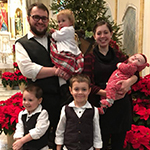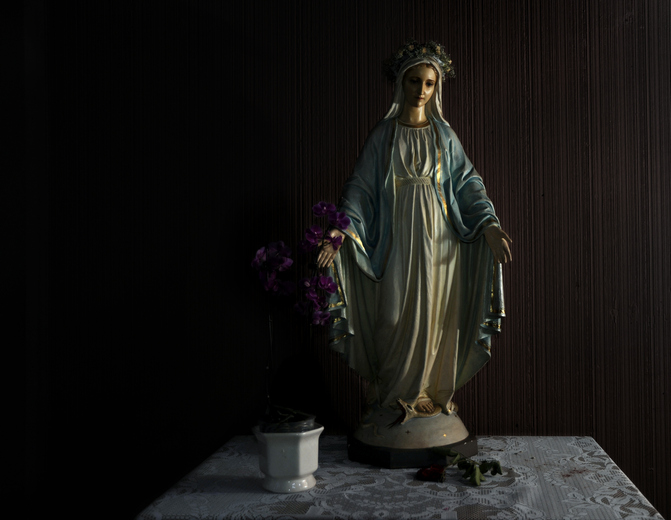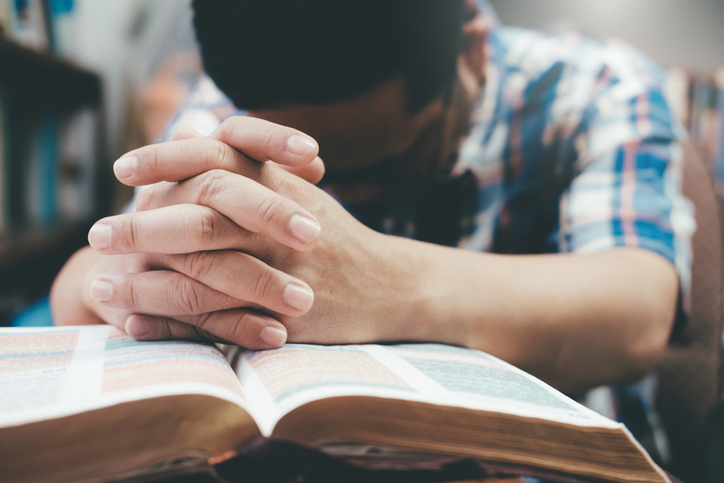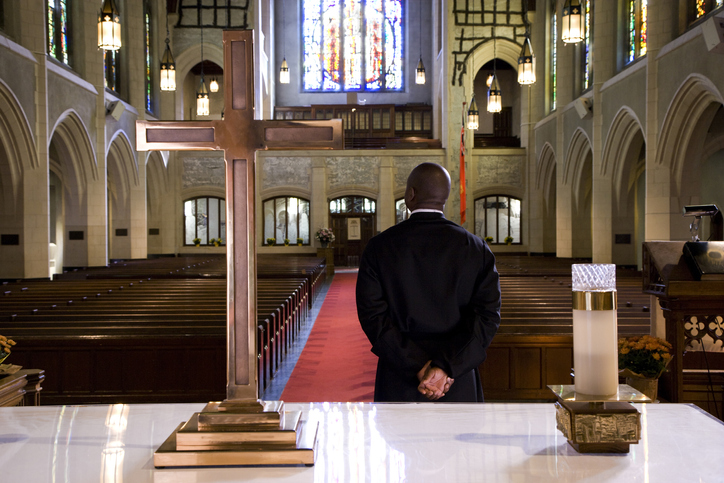In February of last year, Pope Francis gave the Church a new feast day. The day after Pentecost every year is now the memorial of the Blessed Virgin Mary, Mother of the Church. Cardinal Robert Sarah, the head of the Congregation for Divine Worship and the Sacraments, has urged priests to make celebrating this memorial a priority and he said that the readings the Church chose for this feast “illuminate the mystery of spiritual motherhood.” So I thought it would be worthwhile to reflect on the readings today and discover what it means for Mary to be the Mother of the Church and our mother.
The Church gives us two options for the first reading, one of them is from the Acts of the Apostles (I’ll get back to that one) and the other is from Genesis (Gen 3:9-15, 20). This second option is the story of when God confronts Adam and Eve after they ate the forbidden fruit. During that conversation with our first parents, God turned his attention to the serpent and made this remarkable statement:
“Because you have done this, you shall be banned from all the animals and from all the wild creatures; On your belly shall you crawl, and dirt shall you eat all the days of your life. I will put enmity between you and the woman, and between your offspring and hers; He will strike at your head, while you strike at his heel.”
This is the first prediction of Mary and Jesus in scripture. Adam and Eve sinned only minutes before and God already has a plan for how he’s going to fix things. The serpent (representing the devil, sin, and death) will be delivered a fatal blow to the head by a descendant of Eve.
There were only two women in all of human history who did not have original sin, Eve and Mary. Both women were given the choice of either obeying God or turning away from Him. Eve’s choice brought sin into the world whereas Mary’s choice brought Jesus (the destroyer of sin and death) into the world. Eve, whose names means “mother of all the living,” gave birth to sin and death. Whereas Mary gave birth to the Messiah and, in turn, the Church. For, as St. Leo the Great says, the birth of the Head is also the birth of the body.
This brings us directly to the gospel reading for the day. It is St. John’s account of the crucifixion (John 19:25-34) where Jesus is hanging on the cross and sees his mother. The gospel says:
“Jesus saw his mother and the disciple there whom he loved, he said to his mother, ‘Woman, behold, your son.’ Then he said to the disciple, ‘Behold, your mother.’ And from that hour the disciple took her into his home.”
The beloved disciple is likely John himself, but he remains unnamed and thereby represents all of the disciples who Jesus loves, in other words, the whole Church. While hanging on the cross Jesus gives his Church one last gift, a mother – his mother. And Mary doesn’t hesitate in taking on her motherly role.
Now we make it back to the other option that the Church gives us for the first reading taken from the Acts of the Apostles (Acts 1:12-14). Here we see Mary, in a very human way, take up her role as Mother of the Church. This reading takes place immediately after Jesus ascended into heaven. Jesus told them that the Holy Spirit was coming but he didn’t tell them when. So the apostles went back to the upper room in Jerusalem and waited. The reading says:
“When they entered the city they went to the upper room where they were staying…[and] devoted themselves with one accord to prayer, together with some women, and Mary the mother of Jesus, and his brothers.”
Mary was here as a mother to the apostles, encouraging and praying with them as they waited for the Spirit Jesus had promised them. Mary was already full of grace and the Holy Spirit from the Annunciation all those years earlier, so she sat with the apostles and, according to Archbishop Roche (Secretary for the Congregation for Divine Worship) “she who knew more about the Holy Spirit was helping them to persevere, and to pray, and to make a space for the coming of the Holy Spirit in their own minds and hearts.”
And Mary didn’t cease to be the Mother of the Church after her assumption. “We believe that the Holy Mother of God, the new Eve, Mother of the Church, continues in heaven to exercise her maternal role on behalf of the members of Christ” (Catechism 975).
So what does all this mean for us? This feast is another reminder for us to turn to Mary and ask for her motherly help. In my prayer time over the past several weeks the Lord has given me the image of Mary holding her children in her lap and pressing their heads against her heart. By feeling the tender heart of Our Mother we can know Our Father’s heart. The Immaculate Heart of Mary leads us to the Sacred Heart of her Son. At times when we feel distant or angry at God, we can cry out to Mary and ask her to intercede for us and pray for our hearts to soften. And when we’re desperate for the Holy Spirit we know we can ask Mary, who is full of grace, to pray for a greater outpouring of the Spirit on our lives.

Paul Fahey is a husband, father, and a parish director of religious education. He can be found at his website, Rejoice and be Glad: Catholicism in the Pope Francis Generation or read his work at Where Peter Is.




















